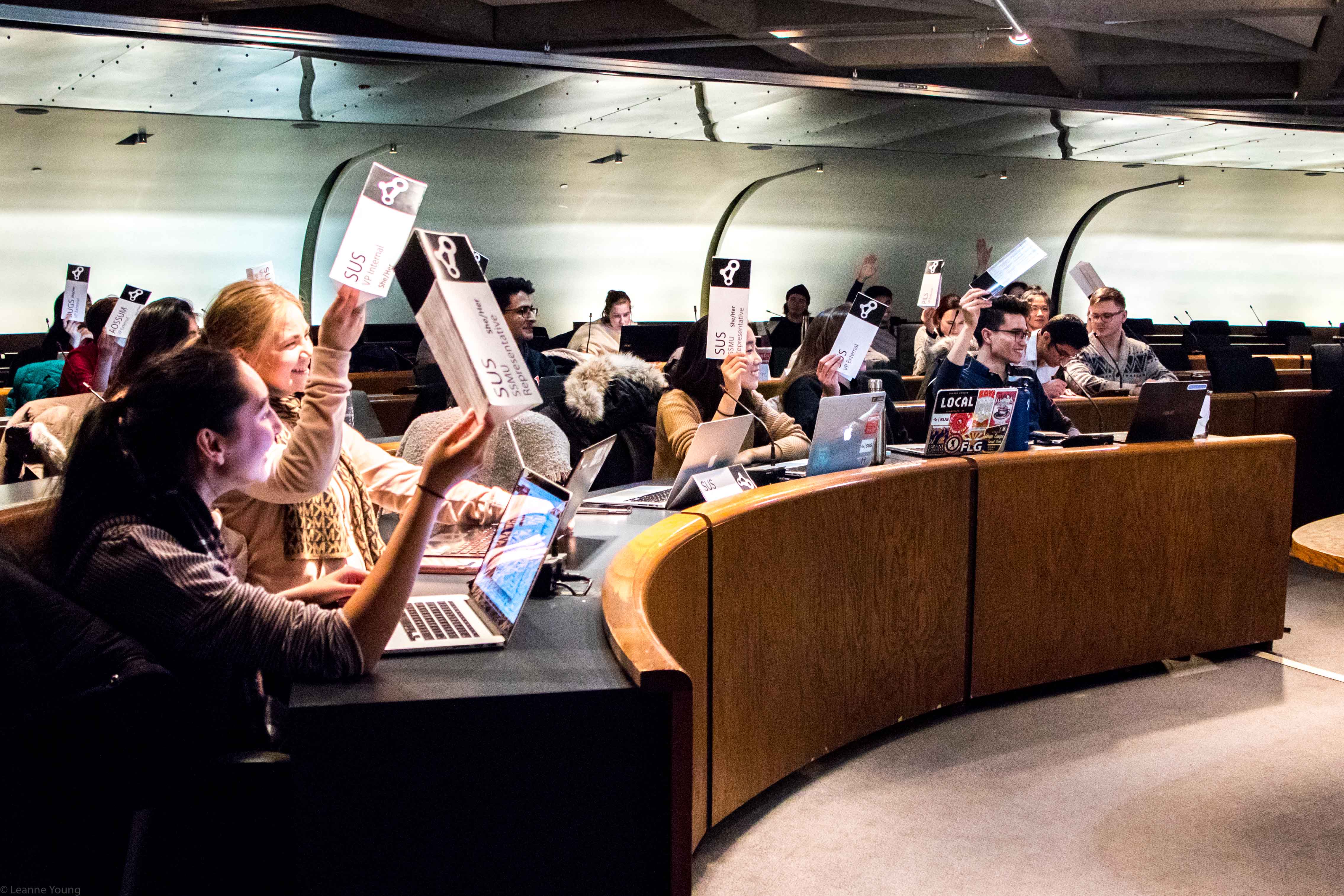The Science Undergraduate Society (SUS) met on Feb. 6 to add two questions to the ballot for the upcoming SUS referendum. The Council also discussed changing how departments receive funding, an increase in the SUS membership fee, and the renewal of the Lab Improvement Fund.
Increase in SUS membership fees
Vice-President (VP) Finance Dylan Wong moved to include a question about increasing SUS membership fees on the upcoming ballot, which was previously discussed at General Council on Jan. 23. Currently, the SUS membership fee is $12.50 per semester for full-time students, whereas the proposed increase would boost it to $15.50. SUS last raised its membership fees in 2015, and, even with the proposed increase, they would remain well below several other faculties’ membership fees: The Engineering Undergraduate Society (EUS) charges $27 while the Arts Undergraduate Society (AUS) charges $16.50. Wong predicts that the fee increase will ideally be sufficient for the next four to five years.
SUS President Reem Mandil emphasized the importance of the fee increase, particularly its use to pay the accountant SUS is planning to hire.
“This is really important for SUS because it allows us to remain a credible organization,” Mandil said. “In the past, we had to shuffle the budget around a lot to adjust increasing prices. This fee increase will help to make sure we stay accountable.”
The motion passed with 21 votes in favour and one abstaining.
Renewal of the Lab Improvement Fund
Another motion, put forth by Mandil, proposed that the renewal of the Undergraduate Society Lab Improvement Fund be featured in the upcoming SUS referendum. At $25 per semester, it is one of the largest fees that science students pay and yet has never been voted on for its 30 years of existence. The money is distributed based on need and goes toward maintaining McGill’s labs. The Faculty of Science matches the fund, dollar for dollar. The referendum question will ask students to approve the fee’s continued existence.
Departmental representatives emphasized the importance of the fee and worried about the potential consequences of terminating it.
“It would actually be quite a large hit on our labs,” Mandil said. “It is a large sum of money, but the labs get a lot more funding to be able to run.”
Despite the concerns, the motion passed with 23 votes in favour, and the question will appear on the referendum for students to vote on.
Changes to the Equalization Fund
Wong also introduced the final motion, which addressed changes to the equalization fund in the finance by-laws. The equalization fund determines how much funding each department in the Faculty of Science gets per semester based on a projected budget that each department submits to the faculty. However, Wong argued that this system is ineffective, as projected budgets are rarely accurate and tend to change significantly.
The proposed system will divide funding according to department size, with the smallest departments receiving the most funding. Some departments may gain funding while others may lose some, but the changes would not amount to more than a hundred dollars for any department.
“It’s not really going to change how much money departments get,” Wong said. “It really just makes it a more dependable system for distribution of money.”
The motion was postponed to give departmental representatives time to examine the exact changes in allocated funds before voting.
SUS Council will meet next on Feb. 20 at 7pm in Leacock 232.









